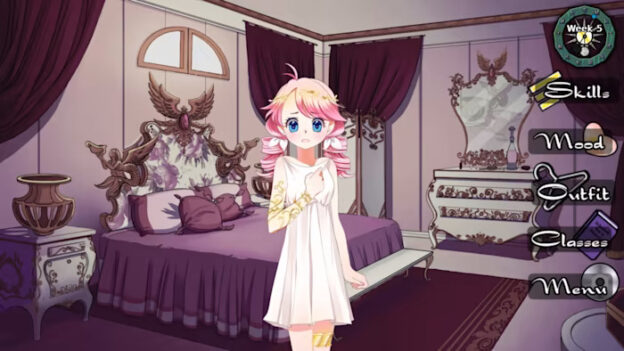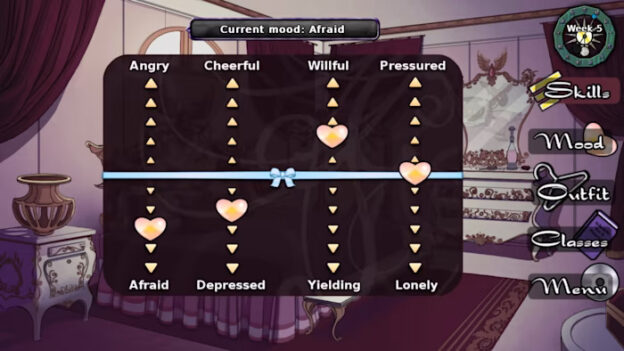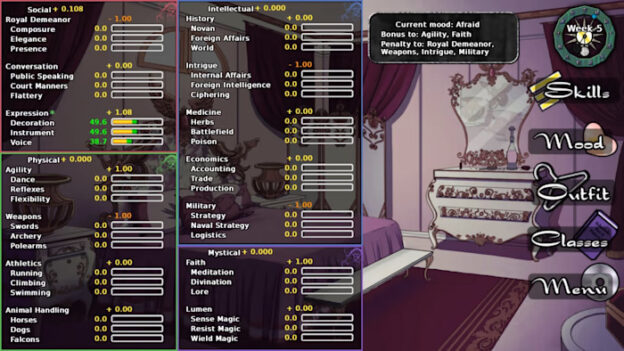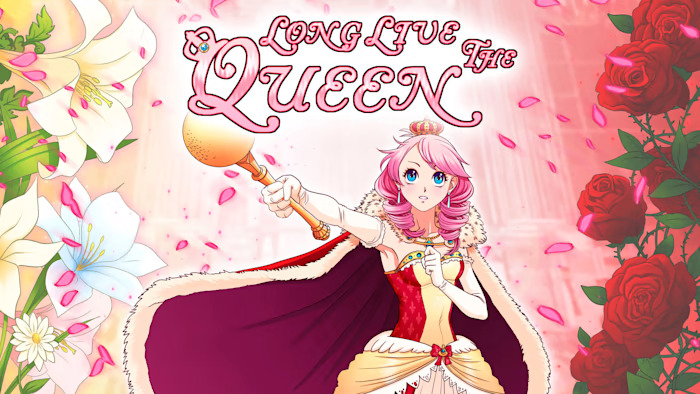Long Live the Queen is described as an adventure-simulation game, but it’s actually so much more. It’s part visual novel, part point-and-click, and all strategy. This intriguing title has a lot of depth for something involving a princess in a castle. And it totally works.
The goal is simple; protect the princess long enough for her to become queen on her 15th birthday. At just 14 years old, Princess Elodie has lost her mother, the Queen of Nova. While she waits out the year until being crowned herself, Elodie must learn the ways of being a royal leader while surviving threats of war … and worse.

The simple plot belies the tricky nature of Long Live the Queen. The game is neatly divided into weeks, meaning all you really have to do is survive 50 weeks to successfully be crowned queen. Easy-peasy, right? Wrong! You begin your year knowing literally nothing about all-important queenly things like public speaking, local lore and traditions, animal handling, athletics, economics, and a large number of other areas. Each week, you select which classes to take to level up your prowess. The trick lies in concentrating on the right subject, with far too many to complete by the end of the year. Meanwhile, you’re constantly put to the test in situations that cause anything from embarrassment to death, all based on your character’s knowledge.
To add complexity to this study challenge, Elodie has a mood indicator. After each week’s lessons, a small section of story unfolds; a relative may visit the castle, or perhaps there’s a royal ball. Sometimes people ask for money or threaten your castle with violence. These events add to your mood, making you angry, depressed, or even lonely. You can also select one castle-based activity each week, such as strolling around the grounds or visiting the dungeons. These affect your mood, too, and your mood impacts your ability to study.

For example, if you’re feeling depressed, you’ll bond with animals more strongly, so animal handling might be a better subject this week. Meanwhile, your ability to retain military knowledge is diminished; you won’t gain enough skill points if you undertake those particular lessons right now.
It starts to sound complicated, but it actually makes perfect sense as soon as you walk through the introduction. And the gameplay is as simple as selecting which classes to take each week, even utilizing the touchscreen in handheld mode, another nice touch. The strategy is therefore two-fold; pick castle activities that affect your mood so you can learn the right lessons, then pick the right lessons to successfully get your princess to the throne.

Simple mechanics aside, it’s a tough balance to actually pull off, especially on your first run-through. Subsequent runs prove somewhat easier, since now you know what’s ahead. For example, you know you’ll need accounting knowledge in order to talk to the treasury before you can begin training in magic. But curveballs still come your way—if you aren’t good enough at dancing, maybe the ball won’t go well; not being able to recognise poison could have dire consequences; if your knowledge of royal etiquette or diplomatic relations is lacking, perhaps you won’t be able to negotiate your kingdom out of a war. The best part is that it’s super fun to navigate these elements.
Long Live the Queen caters for this difficulty with an achievements system that almost encourages you to fail. At the very least, it adds a strong replay value. For example, there are many ways for our young princess to die—from a simple sword fight to a drowning incident—and part of the game’s charm is collecting each one. There are many non-death-related moments to capture, as well, like receiving flowers from a lady or breaking off an engagement. But which decisions will lead the story this way? That’s where the fun lies.

As the narrative unfolds, you’re given the choice of how to answer (if your skills provide you with that knowledge). Other times, you fail the test and the choice is made for you. Thankfully, another asset in this game is its many save slots; saving before a major decision can let you return to try the alternative path from that point.
Aesthetically, Long Live the Queen sports a cute anime style that gives the game an upbeat feel despite all the death and depressed moods. When you become proficient in one activity, you earn a new outfit, which incidentally gives you even more credits in that study area. They also look cool. The soundtrack is a melodic piano-based track that suits the mood of a fairytale castle. It’s a pleasing experience for both the eyes and ears.
Overall, Long Live the Queen puts your strategic thinking to the test in a deceptively simple game with many layers. It’s fun and addictive with a great aesthetic, and is highly recommended for fans of point-and-click adventure games with a visual novel slant.
Review: Long Live the Queen (Nintendo Switch)
Great
Long Live the Queen puts your strategic thinking to the test in a deceptively simple way. It’s fun and addictive with a great aesthetic. Check it out if you’re a fan of point-and-click adventure games with a visual novel slant.


